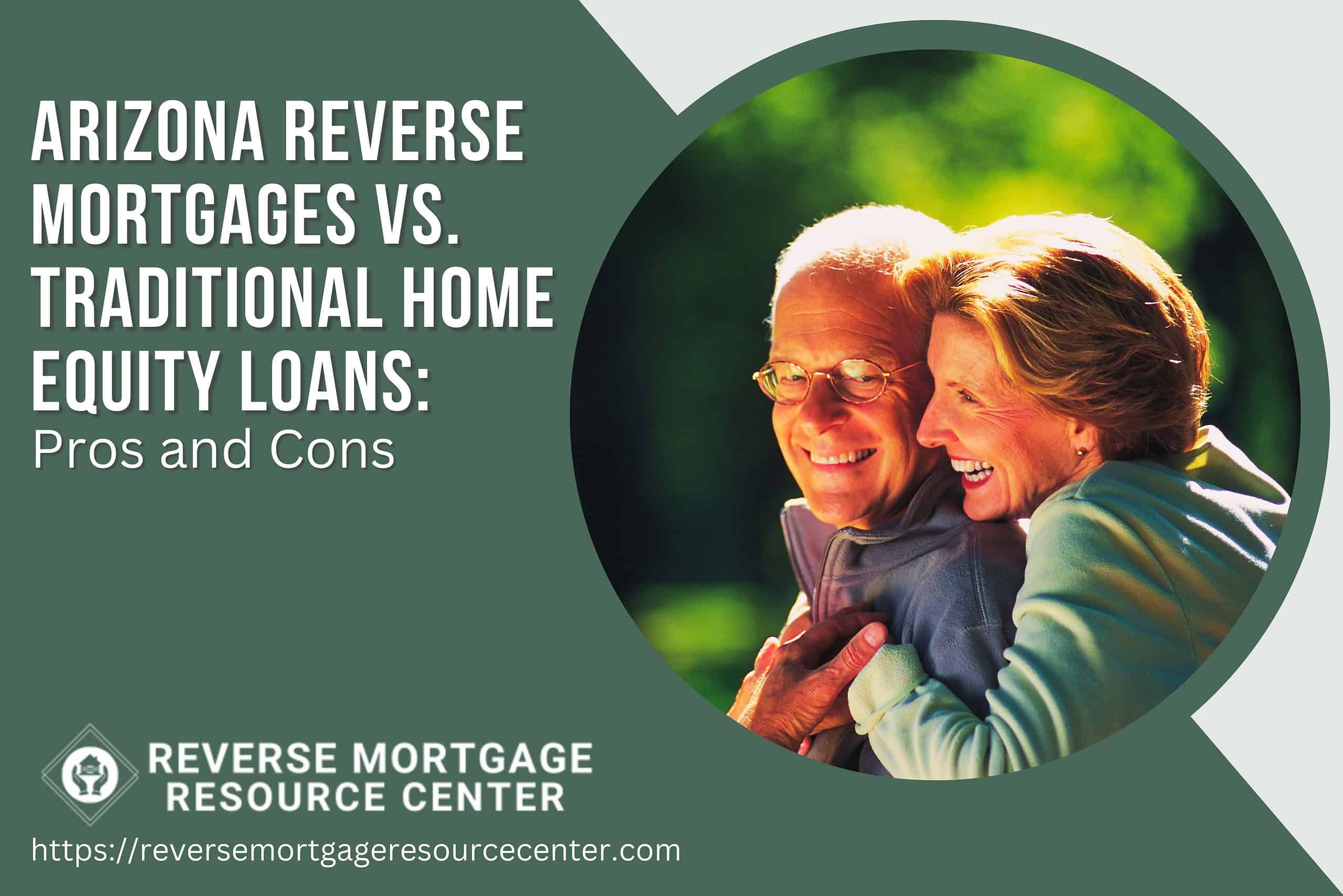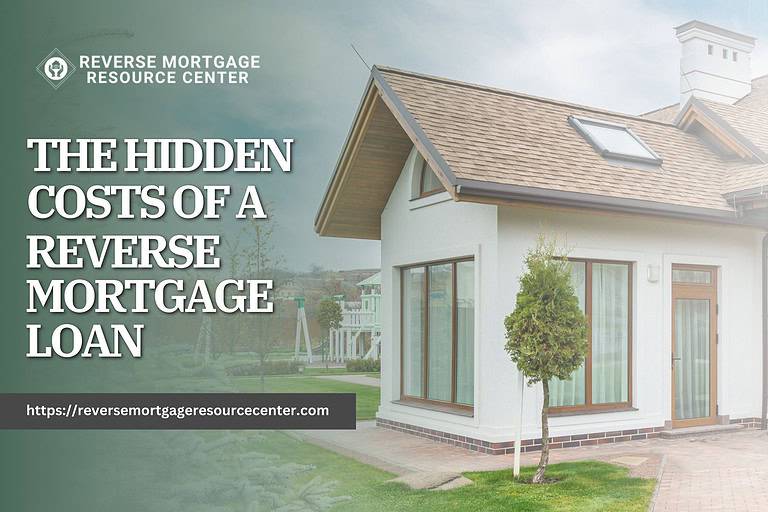Arizona Reverse Mortgages vs. Traditional Home Equity Loans: Pros and Cons
When it comes to tapping into your home’s equity to access funds, Arizona senior homeowners have two primary options to consider: reverse mortgages and traditional home equity loans. Both can be valuable financial tools, but they differ significantly in their structure, benefits, and drawbacks. This comprehensive guide will explore the pros and cons of Arizona reverse mortgages and traditional home equity loans to help you decide which option suits your financial needs and goals.
Understanding Reverse Mortgages
A reverse mortgage, also known as a Home Equity Conversion Mortgage (HECM), is a unique financial product designed for senior homeowners aged 62 and older. It allows them to convert a portion of their home equity into tax-free funds without selling their property. Here are the key features, benefits, and drawbacks of reverse mortgages in Arizona.
Pros of Arizona Reverse Mortgages
No Monthly Mortgage Payments
One of the most significant advantages of a reverse mortgage is that borrowers are not required to make monthly mortgage payments. The loan is repaid only when the homeowner moves out of the home, sells the property, or passes away. This can provide financial relief for seniors living on fixed incomes.
Retain Ownership of Your Home
With a reverse mortgage, you continue to own and live in your home, maintaining control of the property as long as you meet your loan obligations, such as property tax and homeowners insurance payments. This can be reassuring for seniors who want to age in place.
Tax-Free Funds
The proceeds from a reverse mortgage are considered loan advances, not income, so they are generally not subject to federal income taxes. This can be a significant advantage for retirees looking to supplement their income without incurring additional tax liabilities.
Flexible Disbursement Options
Reverse mortgage borrowers can choose how they receive their funds. Options include a lump sum disbursement, monthly installments, a line of credit, or a combination of these methods. This flexibility allows homeowners to tailor the loan to their specific financial needs.
Non-Recourse Loan
A reverse mortgage is a non-recourse loan, which means the loan balance can never exceed the home’s value when sold. If the loan balance is higher than the home’s value, the Federal Housing Administration (FHA) covers the difference. This feature provides a safety net for borrowers and their heirs.
Cons of Arizona Reverse Mortgages
Limited Eligibility
Reverse mortgages are available only to homeowners aged 62 and older, making them inaccessible to younger homeowners. Furthermore, the loan amount is determined by the borrower’s age, the home’s value, and current interest rates.
Upfront Costs
Reverse mortgages come with upfront costs, including loan origination fees, mortgage insurance premiums, and closing costs. These expenses can reduce the initial amount of funds available to the borrower.
Reduced Inheritance
While a reverse mortgage can provide financial support during a homeowner’s lifetime, it may reduce the inheritance left to heirs. When the homeowner dies, the loan must be repaid from the home’s sale, potentially leaving less for the heirs.
Traditional Home Equity Loans in Arizona
Traditional home equity loans, often referred to as second mortgages, are another option for Arizona homeowners looking to tap into their home’s equity. Unlike reverse mortgages, these loans are available to homeowners of all ages. Let’s explore the pros and cons of traditional home equity loans.
Pros of Traditional Home Equity Loans
Available to a Wider Audience
Traditional home equity loans are not age-restricted, making them available to homeowners of all ages. This flexibility is a significant advantage for those who need access to their home equity but do not meet the age requirements for a reverse mortgage.
Lower Upfront Costs
Traditional home equity loans generally have lower upfront costs than reverse mortgages. While there may still be closing costs and fees, they are typically less substantial, leaving borrowers with a larger initial infusion of funds.
Fixed Interest Rates
Traditional home equity loans often have fixed interest rates, giving borrowers predictable and stable monthly payments. This can be especially appealing when interest rates are low.
No Impact on Inheritance
Unlike reverse mortgages, traditional home equity loans do not affect the size of the inheritance left to heirs. The borrower repays the loan and does not depend on the sale of the property.
Cons of Traditional Home Equity Loans
Monthly Repayments
One of the primary drawbacks of traditional home equity loans is that borrowers must make monthly payments, which can strain their finances, especially if they are on fixed incomes. Failure to make these payments can result in foreclosure.
Limited Loan Amount
The loan amount for a traditional home equity loan is typically limited to a percentage of the home’s appraised value. This amount may be insufficient for homeowners with significant equity needs.
Making the Right Choice for Your Arizona Home
Both reverse mortgages and traditional home equity loans have their merits and limitations. The right choice for you depends on your financial situation and goals. Here are some key factors to consider when deciding which option is best for your Arizona home:
Consider a Reverse Mortgage if:
- You are a senior homeowner aged 62 or older and need access to funds to supplemental retirement income without monthly mortgage payments.
- You plan to stay in your home long-term and want to retain ownership.
- You seek income tax-free funds to support your retirement lifestyle.
- You value flexible disbursement options to meet your unique financial needs.
Consider a Traditional Home Equity Loan if:
- You need access to your home equity, regardless of your age.
- You prefer lower upfront costs and a traditional loan structure.
- You want a fixed interest rate and predictable monthly payments.
- You are comfortable with making monthly mortgage payments.
- You want to preserve your home’s value for inheritance purposes.
Consult with Financial Professionals
Before deciding, consulting with financial professionals, including a mortgage advisor and a financial planner, is essential. They can help you assess your financial situation, understand the implications of each option, and determine which one aligns with your long-term goals.
REVERSE MORTGAGE RESOURCE CENTER ~LIVE LIFE ON YOUR TERMS~
Our Lending Team has been serving our clients since 2004. We are passionate about serving our clients with integrity to help them achieve their financial goals.







